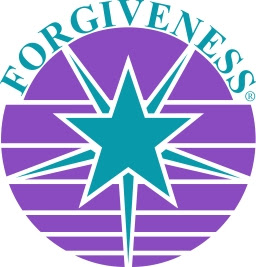Volume 1 Number 2, June 1990
Gloria and Kenneth Wapnick
To Be in the World and Not of It
To Be in the World
and Not of It
The famous biblical phrase which gives this article its title is taken from the Last Discourses of Jesus in John’s gospel, and is referred to six times in A Course in Miracles. One can certainly say that Jesus’ goal for us in the Course is to remember that our home is truly not of this world—“I am not a body. I am free. For I am still as God created me.” (W-pI.rVI)—even as we learn how to be instruments of his love while seeming to be in the world. In this current article we discuss what this goal means in general, while subsequent articles will explore some specific applications of this important principle.
It is extremely easy to misinterpret A Course in Miracles’ emphasis on the illusory nature of the world to mean that we should pay little or no attention to our life and experience in the body, for fear that we would reinforce the dream of our being here. However, this position merely strengthens the belief in the physical world. As the Course reminds us: “it is almost impossible to deny its [the body’s] existence in this world” (T-2.IV.3:10). Nor are we asked to do so. Rather, through the practice of forgiveness we learn to experience living in this world, not as a sacrifice, burden, or imprisonment, but as a joyful classroom in which the Love of God becomes our only reality, regardless of its forms of expression.
Having been made to serve the ego’s insanely horrific purpose of attacking God and excluding His Love, the world could only be horrific; made by fear, it reproduces fear. Yet what we made to harm can become the instrument of healing when we accept the Holy Spirit’s special function (T-25.VI.4). Perhaps the clearest discussion of the Holy Spirit’s healing use of the world we made is found in lesson 184, as seen in the following brief excerpts:
You have need to use the symbols of the world a while. But be you not deceived by them as well. They do not stand for anything at all [but become the] means by which you can communicate in ways the world can understand, but which you recognize is not the unity where true communication can be found.
We are thus asked throughout the day, especially when tempted to make the darkness of the world real, to return to the place of light and love in our minds,
And then step back to darkness, not because you think it real, but only to proclaim its unreality in terms which still have meaning in the world that darkness rules (W-pI.184.9:2-5 and W-pI.184.10:3).

The world, so seemingly cruel and despairing when looked at through the ego’s eyes, becomes brilliantly transformed when its purpose has been changed. No longer are we invested in outcomes, living well, or being right and proving others wrong, for now our one goal is the attainment of the peace of God. Each encounter and circumstance becomes a shining beacon pointing the way Home, and we, being “glad and thankful it is so” (W-pI.200.11:9), rejoice in yet another opportunity to remember we are God’s Son, whose Home is His.
We are repeatedly reminded by Jesus how very simple his Course is. Very few truly experience it that way, of course, for our minds have so conditioned us to complexity. However, we are yet able to learn, with much diligence and practice, that the body’s intricate and complex world can serve as the classroom to teach us salvation’s simple lesson: “I am not the victim of the world I see (W-pI.31). To the contrary, it is what we perceive within that affects what we perceive without. Unknown to us through the mechanism of denial, our inner perceptions of guilt become manifest though our projections onto the world. Looking at them, as if for the first time, we are now free to choose again to see our “hidden hates” and “secret sins” differently. It is our looking, with God’s Love upholding us, that becomes guilt’s undoing. Gladly now we, “happy learners,” walk this world eager to learn as we teach. In one of the more inspiring passages from the workbook (W-pI.rV.IN.9:2-3), Jesus asks of us:
For this alone I need; that you will hear the words I speak, and give them to the world. You are my voice, my eyes, my feet, my hands through which I save the world.
And thus the world becomes a gentle aid of forgiveness: “No longer is the world our enemy, for we have chosen that we be its Friend” (W-pI.194.9:6).

